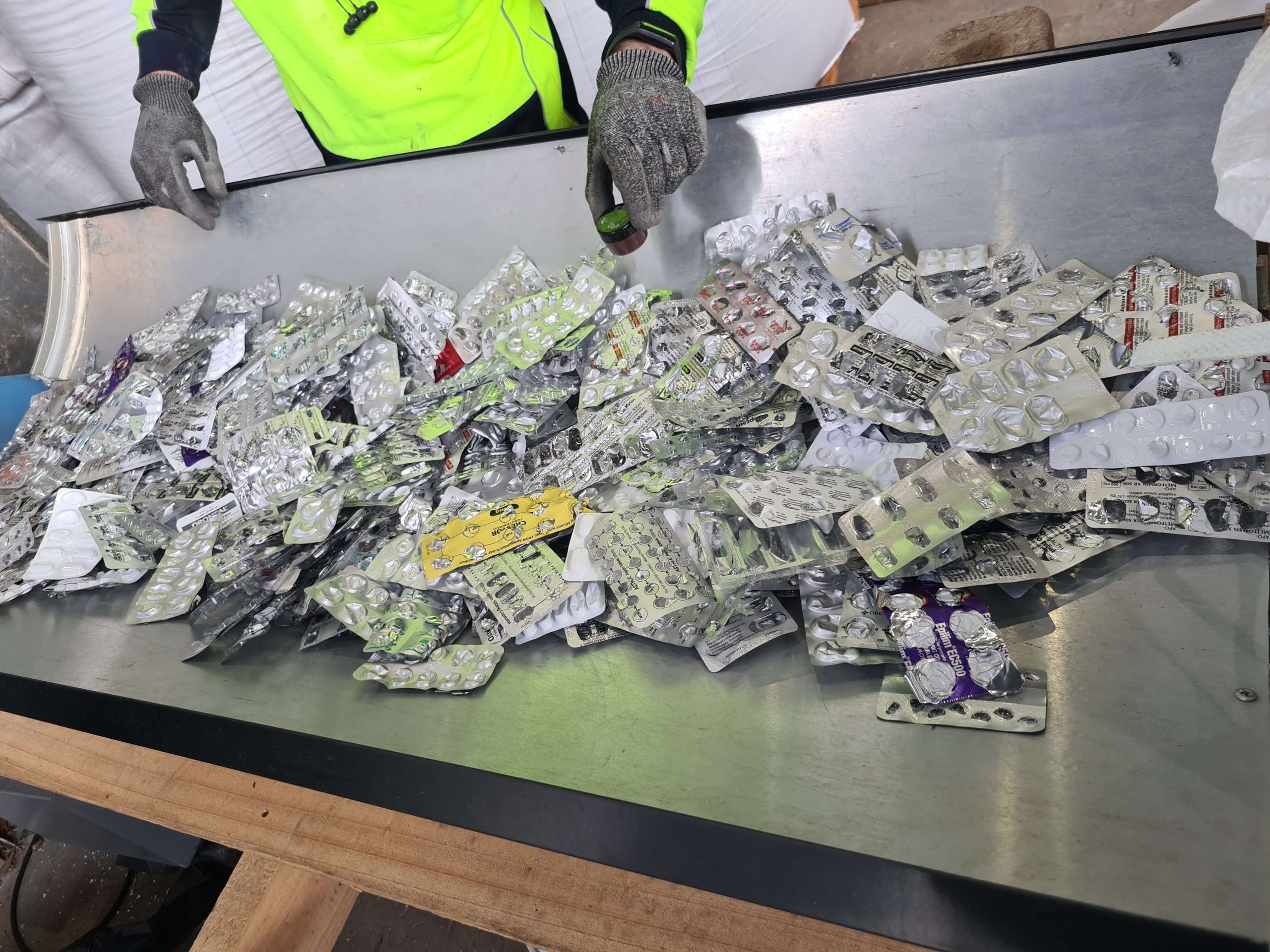A Simple Step for a Big Impact Blister Pack Recycling
- pharmacycle, recycling
- 12 September 2024

Changing The World – One Blister Pack At A Time
At Ecoactiv, we take pride in our leadership in recycling e-waste—a growing category of waste that includes items like old headphones, monitors, and laptops. We are dedicated to closing the loop on e-waste, ensuring that these materials are responsibly processed and reintegrated into the economy, supporting a truly circular system. But our commitment extends beyond just e-waste. We offer a whole-of-house recycling service, covering a wide range of items found in homes and offices—from solar panels to textiles, and even challenging materials like vapes.
Among the items we focus on are empty medicinal blister packs, which are both commonly used and difficult to recycle. That’s why we partner with Pharmacycle, an affiliate program committed to keeping blister packs out of landfills and ensuring their raw materials are repurposed into new products.
Why are blister packs hard to recycle?
The combination of plastic and aluminium makes blister packs difficult to recycle through conventional methods, leading to most of these packs ending up in landfills. As the use of medications and supplements rises, so does the volume of blister packs being discarded, exacerbating the growing waste problem. Traditional recycling systems are not equipped to separate the plastic from the aluminium efficiently, meaning these packs are often excluded from curbside recycling programs. This limitation contributes to growing environmental concerns, as these materials take hundreds of years to break down.
This issue is part of a broader environmental challenge posed by plastic waste. Plastics, including those from blister packs, often end up in landfills or, worse, in the natural environment, where they can persist for centuries. As of 2015, an estimated 79% of all plastic waste had accumulated in landfills or the natural environment, with only 9% being recycled. This highlights the urgent need for effective recycling programs like Pharmacycle, which offer a real solution to this growing problem by ensuring that these difficult-to-recycle items are processed responsibly and kept out of the environment.
To date, Pharmacycle has recycled over 30 million blister packs, saving around 45 tonnes of material from ending up in landfills.
What happens to the blister packs once received at Pharmacycle?
Once your blister packs are received, Pharmacycle manually sorts separates and shreds the materials.
Following this, shredded material goes into specialised equipment that breaks down pre-shredded blister packs into a fine particle mix of around 1 mm in particle size. During this process, the aluminium and plastic are delaminated. Delaminated material is finally passed through air density and electrostatic separation to separate the two materials. Once separated, the recovered plastic, which mainly consists of PVC goes to Think Fencing and the recovered aluminium is supplied to Weston Aluminium.
Video of the recycling process for your reference – https://youtu.be/rE3YKDNyTdA?feature=shared/
Pharmacycle – The Industry’s Trusted Partner
Pharmacycle stands out as the only program in Australia offering a comprehensive recycling solution for blister packs. Unlike some initiatives that merely collect waste and rehouse it offshore, Pharmacycle ensures full visibility and control over the recycling process, from collection to re-entry into the manufacturing cycle. Most importantly, the entire process occurs within Australia, supporting local recycling efforts and reducing the carbon footprint associated with shipping waste overseas. Pharmacycle offers convenient recycling satchels that can be purchased, filled with used blister packs, and then posted back for processing.
Ecoactiv and Pharmacycle are on a mission to reduce plastic waste and promote sustainable recycling practices across Australia and we want you to join us, and the hundreds of Australians already recycling blister packs through Pharmacycle.
Visit our shop to purchase your recycle-at-home satchel – Ecoactiv shop
